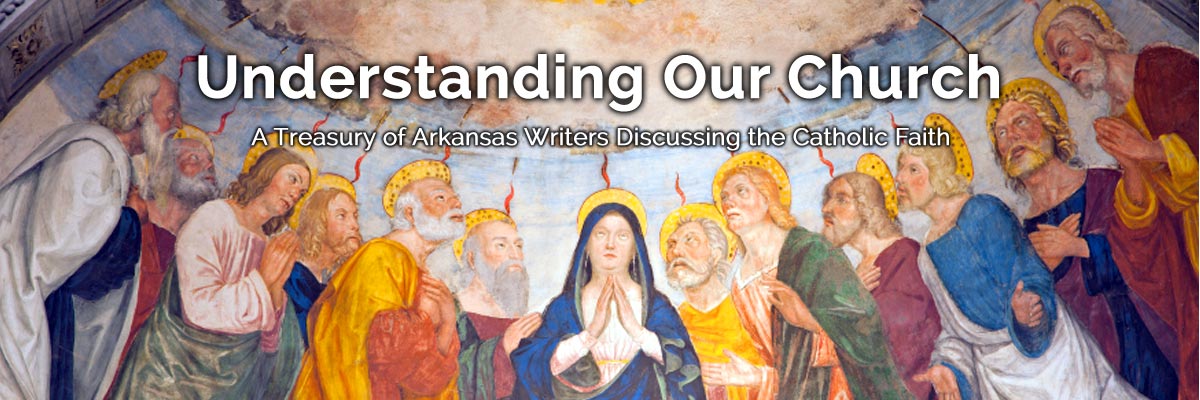Official Website of the
Catholic Diocese of Little Rock
Do not be sorry for apologetics teaching; focus on its hopeful message
Published: March 5, 2015
By Matthew Glover
Chancellor for Canonical Affairs
The field of Catholic apologetics has gotten a bad rap in some circles as of late. Some of that may be well-deserved. To be sure, apologetics is not the end-all and be-all of living a fully Catholic life.
Our faith is not meant to be proven like some scientific equation amounting to perfect certainty. And theology is not meant to be practiced in a purely defensive posture, but rather is a positive endeavor to seek an ever greater understanding of our faith.
The unfortunate result of this bad rap? In most Catholic universities and graduate schools, apologetics is rarely (if ever) taught, viewed as it is by many in academia as a second-rate intellectual exercise.
Thus, a Catholic kid could attend a Catholic college without ever encountering instruction on why the Catholic Church believes and teaches what it does. That, simply put, is a tragedy. It is true that, properly used, apologetics can help others encounter the truth.
Thus, a Catholic kid could attend a Catholic college without ever encountering instruction on why the Catholic Church believes and teaches what it does. That, simply put, is a tragedy. It is true that, properly used, apologetics can help others encounter the truth.
But it also helps our own faith come alive. And, perhaps most importantly, Scripture calls us to learn and practice apologetics (though not in so many words). In 1 Peter 3:15, we are told, “Always be ready to give an explanation to anyone who asks you for a reason for your hope.” Three key words: 1.) ready, 2.) reason and 3.) hope.
First, “ready.” How many times does Jesus and Scripture warn us to “be ready”? That the Lord will come like a thief in the night? Or like a master returning unexpectedly to review the work of his servants? Or like a master returning from a wedding feast?
As Christians, we must always “be ready.” Complacency is not an option. St. Paul was right: If Jesus did not rise from the dead, then our faith is in vain — we are fools. But, if Jesus did rise from the dead, if he did found his Church on the rock of St. Peter, if he did promise that the gates of hell would not prevail against it, if all that is true, then we have no choice but to be all in. And not only all in for ourselves, but all in for others, too; willing to share our faith so that others’ joy might also be complete.
Second, “reason.” This is critical. The purpose of apologetics is not to “prove” that we are “right.” If we could prove with scientific certainty that we’re right — like we can prove that Force = Mass x Acceleration — then we all might call ourselves Catholic. But we wouldn’t necessarily be living in Catholic faith.
We don’t do apologetics to prove that we’re right. We do it to show that what we believe is not unreasonable. That, as St. John Paul the Great so eloquently explained, faith and reason are not contradictory, but complementary. That our ability to reason — which is also part of God’s creation — leads us ultimately back to the same God who endowed us with it in the first place.
Finally, “hope.” In my book, hope is the most underappreciated of the three theological virtues. Sure, faith is our foundation, our starting point. And love binds me to God and others. But hope keeps my eyes on the prize. It’s how I push on. It’s how I survive. It’s how, even in the darkest of hours, there remains a glimmer of light that reaches down and pulls me out from the pit of despair.
Apologetics, then, is ultimately an exercise in hope. And having hope is nothing to be sorry for.




